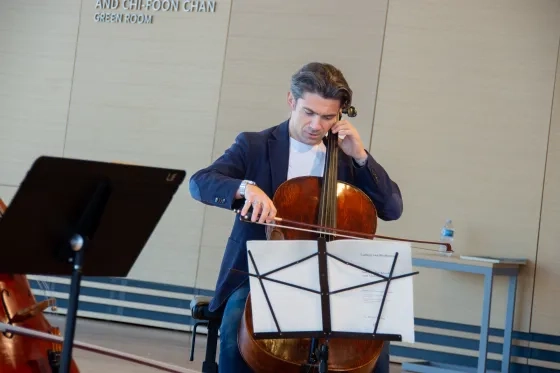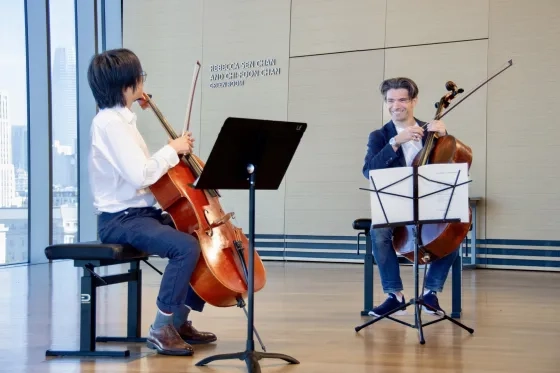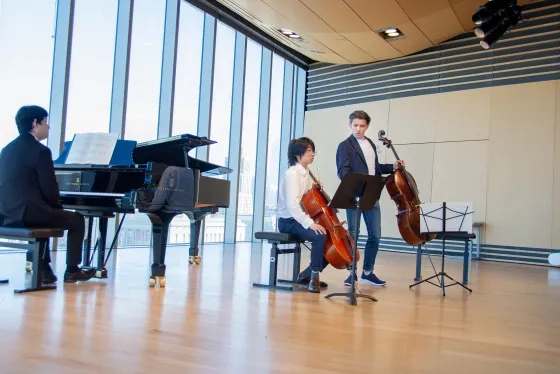Masterclass at SFCM: Gautier Capuçon on Practicing, Technique, and Appendicitis
News StorySFCM cello faculty member Amos Yang shared an anecdote about Capuçon not letting a bad case of appendicitis deter him from a performance.
Gautier Capuçon has been described as "a true 21st century ambassador for the cello," but after SFCM cello faculty Amos Yang introduced Capuçon before his masterclass in October, "trooper" might have been a better descriptor. Yang revealed that the first contact he had with Capuçon was when he arrived at the San Francisco Symphony to play Schumann's Cello Concerto in 2011. After the first rehearsal, Capuçon ended up at the hospital where he was diagnosed with appendicitis and underwent an emergency appendectomy.
"And so we thought, well, that's that," Yang said. "But he came back to finish—just without that body part." That level of dedication was on display throughout the masterclass, during which Capuçon worked with, among others, student Heming Wang, who studies with Jean-Michel Fonteneau.
"Capuçon's huge fame on the internet made me very nervous before meeting him, but his kindness made me feel relieved, which made me very happy," Wang said. "This was my first time listening to his playing so close: I could hear all the details and phrasing from his cello. It’s a huge difference from the recording and he truly inspired some new ideas about my sound."
"The big question for all of us," Capuçon began, "is how to find the balance between excellence and pleasure. We work for hours and hours and hours, and we try to go as far as we can, but we should not forget the pleasure. Music is about pleasure: It's about sharing emotions, giving them to the audience. And if you don't take any while you play, you cannot give them. All our life, we try to balance that: Still every day I learn."
Capuçon's lessons to the students ranged from extremely specific advice on bowing and approaching particular notes in the piece to broader advice on the balance of technique and emotion: "You can play the piece. It's very great, technically, and now the next step is really to try to leave the technique out—which is the most difficult—to only focus on the music. And that it sounds actually very easy, which it is totally not."
Wang acknowledged Capuçon's ideas were challenging but exciting: "His ideas and some of his thinking about my piece were quite different, but it was all new thinking I'd never heard before, and he's given me a lot of new ideas for my music. It’s like before I thought there was only one way to reach my destination but now I have a wider choice."
Fittingly, after the last performance, Capuçon thanked the students and audience, and said, "Now I go to practice."


